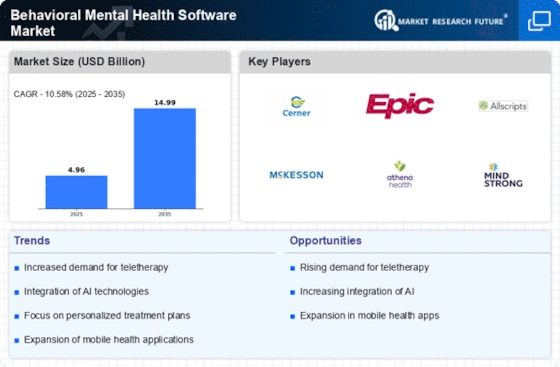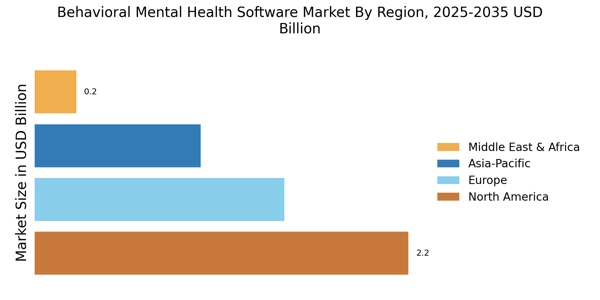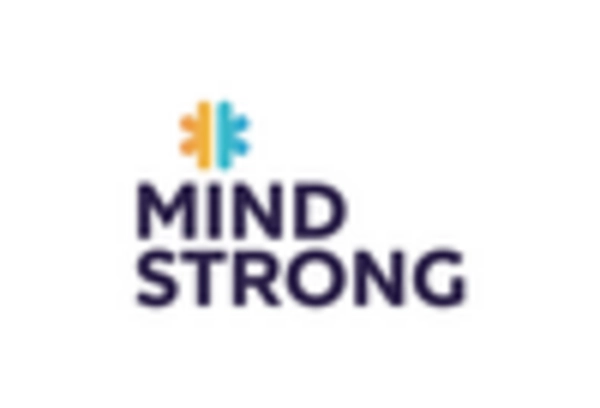Increased Focus on Preventive Care
The Behavioral Mental Health Software Market is witnessing a shift towards preventive care, which emphasizes early intervention and proactive management of mental health conditions. This trend is driven by a growing recognition of the long-term benefits of addressing mental health issues before they escalate. Software solutions that facilitate screening, monitoring, and early intervention are becoming increasingly popular among healthcare providers. By focusing on preventive care, the industry aims to reduce the overall burden on healthcare systems and improve patient outcomes. This proactive approach is likely to drive further investment in behavioral health software, as stakeholders seek to enhance their service offerings.
Rising Demand for Mental Health Services
The Behavioral Mental Health Software Market is experiencing a notable increase in demand for mental health services. This surge is attributed to a growing awareness of mental health issues and the importance of timely intervention. According to recent data, approximately 1 in 5 adults experience mental illness each year, which underscores the necessity for effective treatment solutions. As more individuals seek help, the demand for software that facilitates access to mental health resources is likely to rise. This trend is further supported by the increasing prevalence of conditions such as anxiety and depression, which are driving healthcare providers to adopt innovative software solutions to enhance patient care and streamline service delivery.
Expansion of Remote and Hybrid Care Models
The Behavioral Mental Health Software Market is adapting to the expansion of remote and hybrid care models, which have gained traction in recent years. These models allow for flexible treatment options, enabling patients to receive care from the comfort of their homes or through a combination of in-person and virtual sessions. As more healthcare providers adopt these models, the demand for software that supports remote therapy, monitoring, and communication is expected to grow. This shift not only enhances accessibility for patients but also allows providers to reach a larger audience, thereby contributing to the overall growth of the industry.
Regulatory Support and Funding Initiatives
The Behavioral Mental Health Software Market benefits from supportive regulatory frameworks and funding initiatives aimed at improving mental health services. Governments and health organizations are increasingly recognizing the need for mental health support, leading to the allocation of resources for software development and implementation. For instance, various initiatives have been launched to promote the integration of technology in mental health care, which may include grants and subsidies for software providers. This regulatory support not only encourages innovation but also ensures that mental health services are accessible to a broader population, thereby fostering growth within the industry.
Technological Advancements in Software Solutions
Technological advancements play a crucial role in shaping the Behavioral Mental Health Software Market. Innovations such as artificial intelligence, machine learning, and data analytics are enhancing the capabilities of mental health software. These technologies enable more personalized treatment plans and improve patient engagement through interactive platforms. As software solutions become more sophisticated, they are likely to attract a wider user base, including healthcare providers and patients. The integration of these technologies is expected to streamline workflows, reduce administrative burdens, and ultimately improve the quality of care provided to individuals seeking mental health support.

















